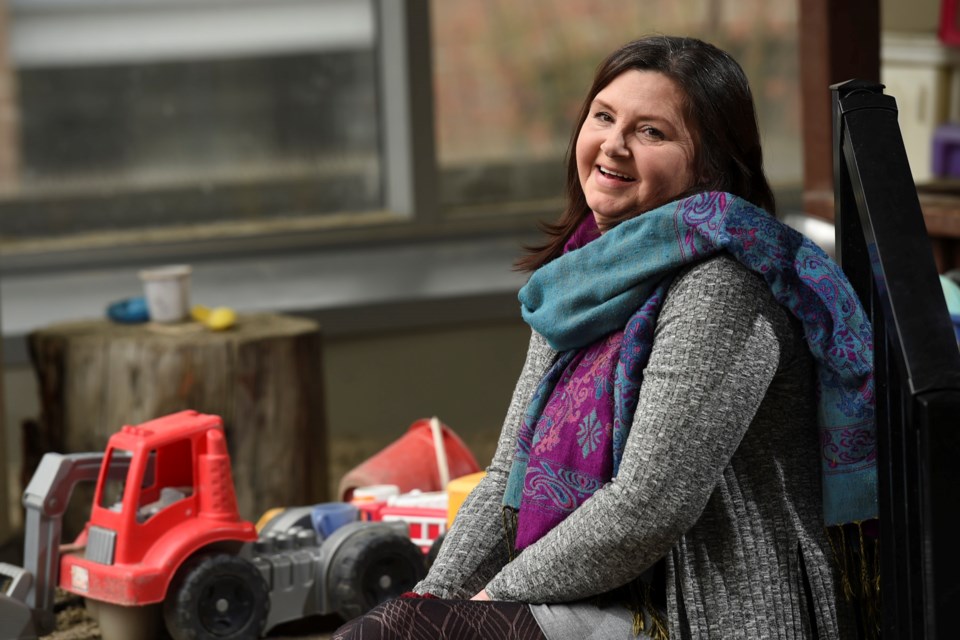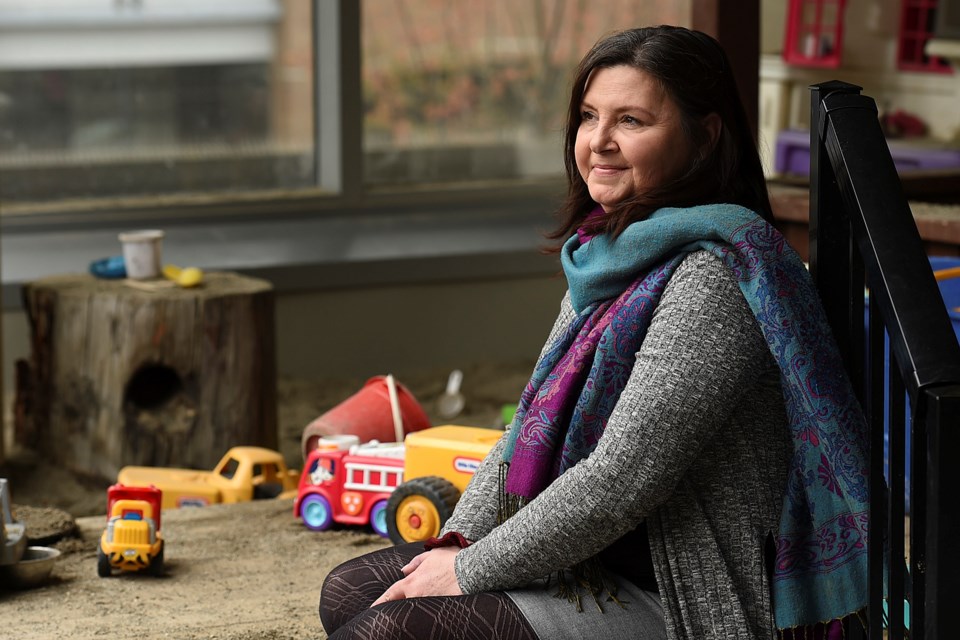Deborah Carter didn’t set out to be an addict.
It wasn’t her plan to lose control of her car on black ice and be prescribed morphine and Percocet to ease the pain of her injuries. Nor did she know she’d become dependent on the drugs to mask the trauma of having been sexually assaulted by a man who had given her HIV and Hep C a year earlier.
She didn’t intend to turn to heroin when the prescriptions ran out, setting off a chain of events that would result in losing custody of her two eldest daughters and selling drugs as a way to stay alive.
“People think, ‘it’s not going to happen to me,’” Carter says. “But trauma can really play on a person. When people suffer one loss after another, the pain becomes much harder to manage without having something to numb all the hurt and anger and feelings of resentment that you’ve carried all this time….
“You don’t lose everything at one time; it chips away at everything you have.”
Everyone has their “rock bottom,” she says. Hers was in the bathroom of an SRO when a public health nurse told her she was pregnant. Years earlier she had given up custody of her two oldest daughters; was this third child also going to have to deal with abandonment?
“The rock bottom wasn’t the pregnancy. It was just the realization, ‘I’m screwed.’”
The pregnancy sparked a determination to take back control of her life. She had to find a way to convince authorities that instead of putting her baby up for adoption, she could provide them both with a stable and loving home.
That’s when she learned the power of seeking help.
Today, her youngest daughter is 11 and Carter works at YWCA’s Crabtree Corner to provide support to young mothers and the homeless.
On May 16, she will overcome her shyness and nervously take to the stage at the Vancouver Convention Centre, trying to ignore the 1,500 people who will watch her accept Coast Mental Health’s 2017 Courage To Come Back award in the addiction category.
“Courage is a verb to Deborah; she lives it every day,” Nancy Cameron, Crabtree Corner’s retired associate director, wrote in a letter of support for Carter’s nomination. “I hope Deborah’s story will challenge those destructive stereotypes of women and addiction, homelessness and poverty. Her story exemplifies how opposites exist on the road to recovery: hopelessness and hope, aloneness and community, despair and joy, vulnerability and strength.”
Carter grew up in Vancouver’s Eastside. Her father was in prison so she was raised by her mother and grandmother. In her early twenties she fell in love with one of her father’s friends and moved to Manitoba. Her husband also landed in prison, leaving Carter to raise their two daughters alone.
In 1997, a man who had attacked three other women sexually assaulted her. She fought back by giving testimony that led to his eight-year prison sentence.
A car accident a year later proved to be her undoing. Everything came crashing down, burying her in a deep depression.
She returned to her mother’s house in Vancouver with her five- and 10-year-old daughters. Four years in, her addiction was out of control and, after a few failed attempts in treatment programs, she was kicked out. “It was only fair that I leave and fix what needed fixing and not impose my addictions on my family,” she says.
For the next four years she was homeless. “I had a couple of good friends but the Downtown Eastside is not where you meet people who have your best interests at heart. You’re homeless and look for a safe place to sleep after being awake for four days. Do you go to the house of a person you don’t know or just pass out outside? With any luck you choose the best option.”
It wasn’t just the pregnancy that finally led her to seek help, something she now knows she should have done much earlier. Because of her health problems, her baby had to be delivered by an emergency caesarian section. Carter became septic and then was devastated by a “super bug”, resulting in staying in hospital for nine weeks.
“Help comes from strange places,” Carter says. One of the nurses took a special interest in her. “She didn’t try to point out what I was doing wrong. It was more how I was hurting myself and how I was worthy of change.”
Carter learned something valuable, something she puts into practice when she’s working with people with addictions. “Just be there and listen and maybe something I say will trigger some change in them.”
She regrets her wasted years of thinking she could cope on her own. “People do listen if you open up. They can point you in the right direction. I didn’t expect anyone to fix my problem. I just needed some guidance. If you haven’t lived it before, you don’t know how to make the change.”
Her daughter, who had suffered from addiction withdrawal at birth, was four months old before Carter got to meet her.
To get back custody, Carter moved into a recovery house and enrolled in various programs. “I did everything I was supposed to do. I knew I wanted my daughter back…. She was my guardian angel.”
Just before her daughter turned one, social services felt she was ready. “I was ecstatic. I had applied for social assistance and was grateful to have it. We lived frugally and my mom helped us out. As difficult as it could be, I was happy. I had my daughter with me, a roof over my head, food in the fridge, a relationship with my two oldest daughters and I was building trust with my mother again.”
When her daughter got a spot in Crabtree Corner’s daycare program, Carter didn’t drop her off and leave. She stayed to take part in the programs, then started volunteering and created a sense of community. Her self-esteem grew as she listened to the other women’s stories which in turn gave her a greater awareness of how her life had been affected by things beyond her control.

Since then she’s had a variety of jobs at Crabtree. Currently she’s a homelessness prevention worker, single mothers facilitator and outreach worker. She’s also an on-call program assistant at the Wish drop-in centre to help women in Vancouver’s street-based sex trade.
One of the women she’s helped is Allie. Allie was court-ordered to enroll in Crabtree Corner’s Nobody’s Perfect program as part of her addiction treatment. Expecting to be judged for having lost custody of her son, she instead was put at ease by Cater.
“There were moments of hopelessness and Deborah was a pillar of strength of positivity and always encouraged me to never give up,” Allie says. “She always had the best and most informative approach to be successful…. The strength I saw in Deborah was what I wanted.”
Allie credits Carter with helping her get her son back. Today, she is finishing up a degree in social work.
It’s still difficult for Carter to deal with the ramifications of her own years lost to addiction. Her oldest daughters are 29 and 24 and lead fulfilling lives. “The relationships took some time but we’re at a place of forgiveness. They were angry and I don’t blame them.
“I can’t make the time they lost with me come back but I hope I can make a future with good memories. We can’t go back and change it so we can just move forward and make the best of it.”
The Courage To Come Back Awards, presented by Silver Wheaton, are May 16. The gala is a major fundraiser for Coast Mental Health.



